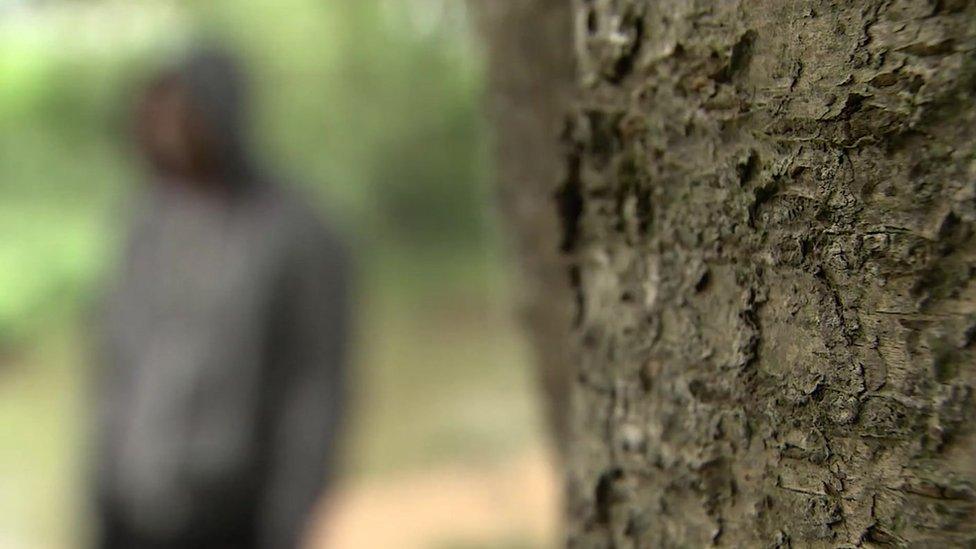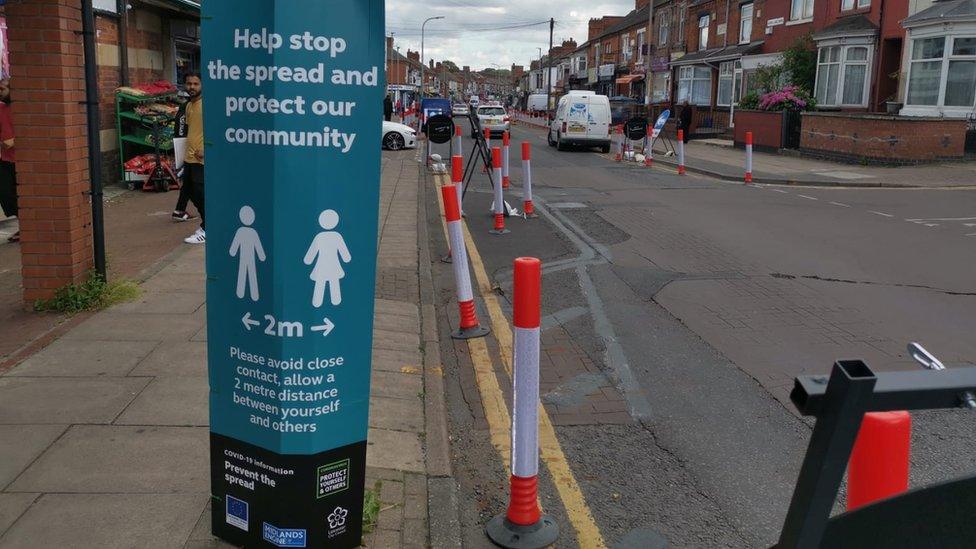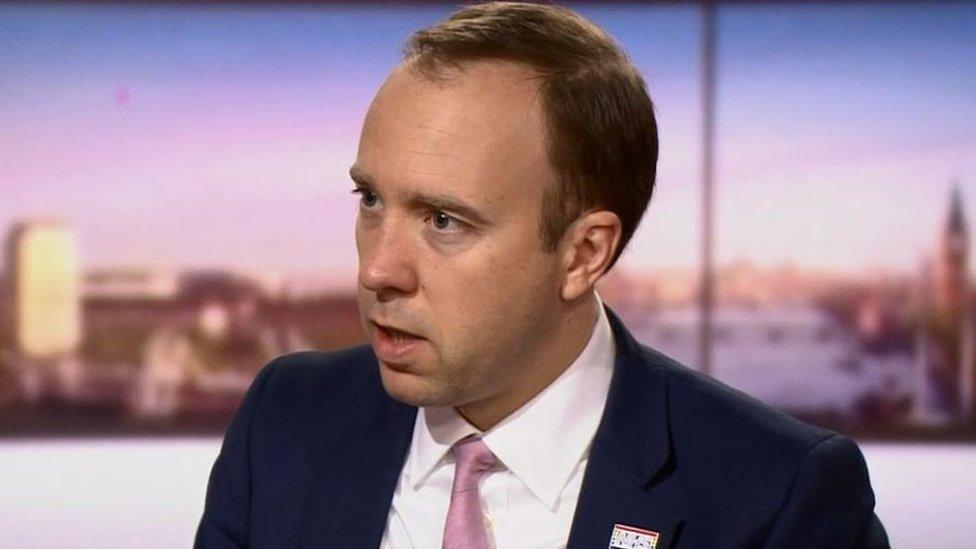Leicester lockdown factories 'almost doubled staff' during Covid-19
- Published

The anonymous whistleblower said some factories had stayed open and taken on extra staff during the lockdown
A whistleblower from Leicester's textile industry says some factories almost doubled their staffing to cope with online orders during the Covid-19 lockdown.
The worker, who cannot be identified, said firms that "maybe used to have 50 people working comfortably, now had 80 or 90 people in the same area".
Investigations are ongoing into employment practices at several firms.
A lockdown was enforced in Leicester after a spike in coronavirus cases.
The worker told the BBC some factories had stayed open and taken on extra staff during the lockdown.
"If somebody did have Covid or wasn't well, they were still there passing it on to whoever's next to them," he said.
"During Covid we've had no social distancing whatsoever in the factories.
"They [factory bosses] were getting a lot of pressure from customers to produce garments as quickly as possible, in as much volume as possible, because people were shopping from home and they needed the goods to be in.
"So the pressure was on these suppliers to hire anybody that was walking around and just get somebody on a machine to make a garment.
"Garments go through, six, seven pairs of hands before they get packed and sealed, so a lot of people are touching the same things."
He said the situation had made already poor conditions worse.
"Very few factories, if any, have cleaners coming in and out," he said.
"I've seen people eating at their tables, then going straight back to work. There's no kitchens in a lot of these places, there's barely toilets, and it's all logged because it's all about productivity rather than humanity."
Concerns about working conditions have prompted investigations by several agencies, including the Gangmasters and Labour Abuse Authority, Leicester City Council, the police and fire service, the Health and Safety Executive (HSE) and immigration enforcement.
Health Secretary Matt Hancock said on Sunday he was "very worried about the employment practices in some factories".
The whistleblower said the falling price paid for products had led to a "substantial" decline in pay rates and working conditions over the past 10 years.
"The way the market is at the minute, it's the person who produces the good cheapest who gets the order," he said.

Leicester was put on a local lockdown after Matt Hancock said it accounted for 10% of all positive Covid-19 cases in the country
Lukasz Bemka, from the Bakers and Allied Workers Union, said they shared concerns about pay practices and safety at the factories.
"Some people are not getting their wage slips - just cash in hand," he said.
"There have been issues around providing the appropriate PPE during the pandemic and not carrying out the proper risk assessments."
He said some factories used CCTV cameras to alert factory bosses if the authorities paid a visit.
"In the case of a police raid or agency visit they can quickly get rid of uncomfortable people from the shop floor.
"They can even get rid of the whole workforce within minutes before the authorities hit the shop floor."
An HSE spokeswoman said it was investigating 10 textile businesses in Leicester. The whistleblower is not understood to have been referring to any of the businesses under investigation.
The spokeswoman said: "Since the start of the pandemic in March, we've made 80 workplace interventions with more than 45 site visits. Ten investigations are on-going. Enforcement action has been taken against 10 businesses.
"Following this particular outbreak in Leicester, HSE has engaged with 32 textile businesses and undertaken 30 site visits to assess compliance with health and safety legislation.
"Enforcement action of some kind is being taken at half of these businesses where non-compliance with health and safety requirements, including COVID-19 risk controls, was found."

SOCIAL DISTANCING: What are the rules now?
FACE MASKS: When should you wear one?
TESTING: Who can get a test and how?


Follow BBC East Midlands on Facebook, external, Twitter, external, or Instagram, external. Send your story ideas to eastmidsnews@bbc.co.uk, external.
- Published7 July 2020

- Published6 July 2020

- Published5 July 2020
